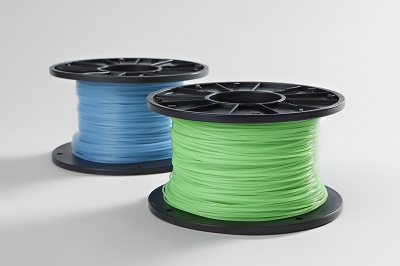The recent webinar organised by NatureWorks on “Printing Consciously: Considering Sustainability in 3D Printing” showed several issues and concerns on the application of plastics especially now with the growing popularity of 3D printing. The event was hosted by Dan Sawyer, Business Development Leader and Deepak Venkatraman, Applications Development Engineer, both from NatureWorks. The two presenters gave an overview of how sustainability in 3D printing can be achieved through NatureWorks’ Ingeo™ biopolymer.
In his introduction, Mr. Sawyer described how the global plastics production has risen four fold over the last 40 years, and given the current trends, greenhouse gas (GHG) emission from plastics would reach 15% of the global carbon budget by 2050. Without action, the volume of plastics that will flow out into oceans could triple by 2040, yet current commitments will reduce annual plastic flows to the ocean by only 7%. No single solution is in sight.

Dan Sawyer, Business Development Leader, NatureWorks
The Ellen MacArthur Foundation works to inspire a generation to re-think, re-design and build a positive future circular economy. With circular economy as solution and given that 3D printing provides an ideal production option to design and create products, renewably sourced materials are ideal alternative to petrochemical-based materials.
Ingeo™ biopolymer is renewably sourced material produced by NatureWorks through a technology that turns greenhouse gases, such as atmospheric carbon, into feedstock to produce polylactic acid (PLA) performance materials. The company uses plants like corn, cassava, sugar cane or beets to capture and sequester CO2 transforming it into long-chain sugar molecules. The whole process embraces the principles of sustainable agriculture. As Mr. Sawyer explained, renewable feedstocks result in a lower manufacturing impact as against petrochemical-based materials, and 84% less greenhouse emission. NatureWorks has obtained necessary certification for the feedstock including ISCC certification.

Deepak Venkatraman, Applications Development Engineer, Natureworks
Applications expanded
The NatureWorks presentation also provided some examples of additive manufacturing applications of Ingeo™. For 3D printing, the bio-based alternative is designed and produced for maximum reuse in adherence to the circular economy principles. Moreover, for additive manufacturing, Ingeo™ is ideal as it reduces material consumption, cuts down over-engineering and is optimised for performance and functionality as it allows for faster printing time.

The presentation by Mr. Sawyer also tackled some concerns on effective after-use. As mentioned after use options could include reuse, organic recycling, mechanical recycling and chemical recycling.
Deepak Venkatraman, Applications Development Engineer at NatureWorks, focused on mechanical recycling in 3D printing. He also cited examples where upcycled post-industrial Ingeo™ scrap is used in large format, direct resin to print technology by one company, as well as other cases. The use of post-industrial material has also been an option in filament production.

NatureWorks has been undertaking R&D project to show how closed-loop material can be collected, cleaned, and blended with post-industrial material to make high quality PLA for 3D printing resin and filament. It has been partnering with other companies to develop more new applications for Ingeo™ as it moves forward to attain a circular economy in 3D printing.














